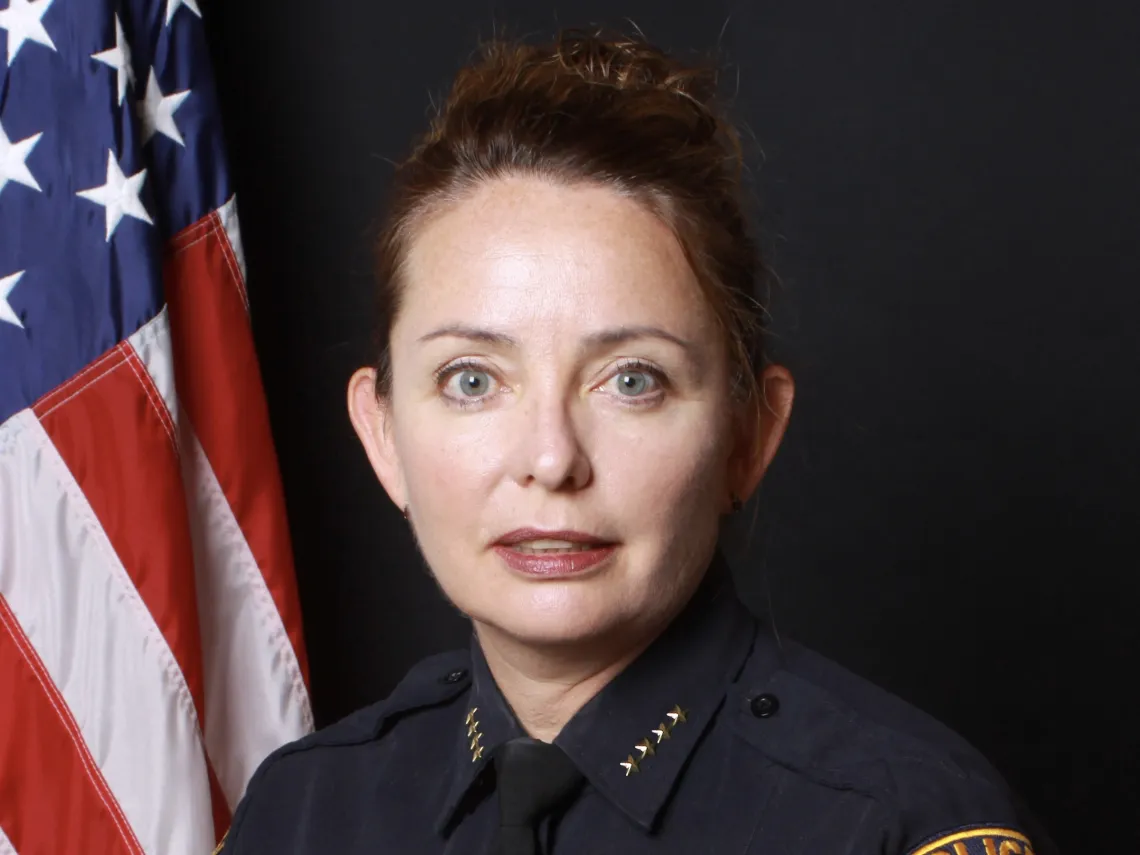Transforming Law Enforcement: Community Engagement and Receptive Leadership

University of Arizona alumna Kara Riley grew up near a Sudanese prison, where she witnessed a reality that stood in stark contrast to the concept of justice as she understands it today. This experience shaped her life’s work.
“You would see people chained to a tree to die for theft,” Riley recounted. “And you realize, this is not a justice system.”
Those recollections remained vivid as Riley’s family moved from Sudan to Abu Dhabi and Taiwan — driven by her father’s dedication to “combating the worldwide epidemic of starvation.”
Eventually, they settled in Arizona. As a teenager, Riley’s path toward a career in law enforcement materialized when she was pulled over for speeding.
“I thought I was going down the lawyer road until that moment,” Riley said. But after asking the officer if a woman could do his job, his ‘yes’ changed her mind. Immediately, she knew her calling was to uphold the justice absent in her childhood — to be a “voice for the voiceless.”
Riley, a 1990 sociology graduate, joined the police force in 1992 and became Oro Valley police chief in 2020. “I chose this degree because it’s the study of human behavior, which I do every day in policing,” she says.
Her openness and proactive problem solving have built trust and improved practices, highlighting sociology’s vital role in her work.
Reflecting on her career, Riley notes the most significant challenges have come in the last five years, primarily because of the pandemic and George Floyd’s murder. She says these challenges underscored the need for collaborative law enforcement — both locally and nationally — and deeper community engagement.
“[During the pandemic] I counted on the leadership of the men and women here at the agency and frankly, police officers across this country,” Riley said. “We’ve become better because we had to hear and see things about our profession we didn’t want to.”
EMBRACING TRANSPARENCY & LEARNING FROM THE NEXT GENERATION
For Riley, doing better means confronting biases and modeling transparent communication. “One of my biggest passions is having an open dialog with the public,” Riley said.
This openness manifests in her work with the next generation of officers, as she aims to learn from and empower those she leads.
“This next generation of leaders naturally have an open mind about perspectives and different views,” Riley said. “So, my generation of policing — maybe not as open-minded, maybe a little rigid, and . . . I’ve had to evolve.”
Riley’s drive toward positive change extends to her U of A Campus Safety Commission role, where she offers expertise to address safety issues on campus.
“What I love about the commission is the diversity from every section of the university, all in one room,” Riley explained. “It’s a unique way to have . . . honest, courageous conversations that better the university as a whole.”
Riley’s love for the University of Arizona comes from her father, James Riley, who spent nearly 50 years in the Department of Environmental Science. Like him, she holds basketball season tickets.
“It’s in our DNA — my father had season tickets before Snowden was coach,” Riley said. She shares her dad’s passion for work, too.
“He used to say, ‘If you love your job, you’ll never work a day in your life,’ and he was right,” Riley said. “I’m so glad I started in this field — I would absolutely do it all over again.”
##
This story was included in the fall 2024 Developments newsletter.

